Our teeth not only enhance our smile but also indicate our overall health and well-being. Jacqui Anderson from Alpers Dental shares a guide to a youthful smile and a non-surgical solution for one prevalent health issue, sleep apnoea and snoring. Style director Louise Hilsz shares her experience with her partner's life-changing snoring treatment.
Image BeautyEQ
The beauty industry has come a long way in terms of openly discussing treatments like Botox, lip fillers, and body sculpting. The conversation around professional—and often expensive—beauty enhancements is far more transparent for those who invest in their looks for a positive image. But there's still one category of treatment that's discussed less openly: smile enhancements or a major health issue - sleep apnoea and snoring. So we found a holistic dental practice that offers more than a routine check-up. Alpers Dental in Auckland is leading the way with oral innovations, from restorative and cosmetic dentistry to TMJ dysfunction to ease jaw pain, to hyperbaric oxygen therapy, to cosmetic injectables, and that common, relationship-threatening health issue: sleep apnoea and snoring.
Alpers Dental practice manager, Jacqui Anderson
Along with dentist husband Nic Anderson, this husband-and-wife team are dedicated to building a practice that feels welcoming, professional, and genuinely people-centred. Their mission is simple — to help patients look and feel their best through high-quality, compassionate dental care.
Here, Jacqui Anderson shares advice and solutions for all your oral needs. Read on to learn more.
First, how important is dental care as we age?
Dental care becomes even more important as we get older. Our teeth and gums are not only vital for eating and speaking but also deeply connected to our overall health. Gum disease, inflammation, and tooth loss can affect nutrition and confidence, and are linked to systemic conditions like heart disease, diabetes, and cognitive decline. Regular dental visits, preventive care, and good daily habits help preserve not just your smile, but your wellbeing and independence as you age. Most of us have heard of our gut microbiome, but fewer realise the mouth has its own ecosystem that plays a crucial role in overall health. So how do we address that? The mouth is home to a complex community of bacteria — some beneficial, others harmful. Keeping that balance healthy means daily brushing and flossing, limiting sugar, and staying hydrated. Avoid harsh mouthwashes that kill all bacteria, as they can disrupt the natural balance. Eating a diverse, whole-food diet also helps nourish a healthy oral microbiome.
Fluoride has long been the go-to for cavity prevention, but hydroxyapatite (a naturally occurring mineral found in bones and teeth) is popular - what are your thoughts, or are both beneficial?
Both have their place. Fluoride has decades of strong evidence supporting its effectiveness in preventing decay, but hydroxyapatite is an excellent alternative — especially for those seeking a more natural option. It works by remineralising the enamel and making it smoother and more resistant to acid. Many of our patients use hydroxyapatite successfully, and we support either choice depending on individual needs and preferences.
Our gums tell a story about our general wellness. How do you keep them healthy?
Healthy gums rely on consistency — brushing twice daily, flossing or using interdental brushes, and maintaining a balanced diet. Managing stress, getting enough sleep, and avoiding smoking all help, too, as gum health reflects the body’s inflammatory state. Regular dental visits allow us to detect early signs of gum disease before it causes lasting damage.
What do you recommend: an electric or a manual toothbrush for daily care?
Electric toothbrushes generally provide a more effective clean with less effort, especially for those with limited dexterity or hard-to-reach areas. However, technique matters most. If you’re using a manual brush correctly for two minutes twice a day, that’s perfectly fine too.
What about toothpaste vs tooth mousse?
They serve different purposes. Toothpaste is your daily defence against plaque and decay, while tooth mousse (containing calcium and phosphate) helps remineralise and soothe sensitive teeth. We often recommend tooth mousse as an extra boost for patients with weak enamel, sensitivity, or dry mouth.
What toothpastes do you recommend to your patients?
It depends on the person’s needs. For everyday care, we like options with fluoride or hydroxyapatite. For sensitive teeth, products like Sensodyne or GC Tooth Mousse Plus are great. For a natural approach, we often recommend hydroxyapatite-based pastes like Grin or Red Seal. The key is using something that protects enamel and supports a balanced oral microbiome.
There is a move away from mouthwash for tongue scraping. What do you recommend?
Tongue scraping is fantastic — it removes bacteria and debris that contribute to bad breath and an imbalance in the mouth. If you use a mouthwash, choose an alcohol-free, gentle one, and don’t rely on it as a substitute for brushing or flossing. For many people, tongue scraping and good oral hygiene are all that’s needed.
What is a sensible dental checklist we should all follow as we get older?
Brush twice daily with a soft-bristled brush and fluoride or hydroxyapatite toothpaste. Floss or use interdental brushes daily. Stay hydrated — saliva protects your teeth. Eat a nutrient-rich, low-sugar diet. Visit your dentist at least twice a year. Address grinding, dry mouth, or gum changes early. Keep dental appliances clean and well-fitted. Never ignore bleeding gums, sensitivity, or looseness.
You offer more than routine and cosmetic dentistry; in fact, your practice is holistic, providing facial rejuvenation. What does this involve?
Our approach to facial rejuvenation focuses on natural, balanced results that complement the smile. We use treatments such as Botox, dermal fillers, and skin therapies to restore facial harmony and confidence. Because dentists understand facial anatomy so deeply, we can achieve subtle, precise enhancements that look fresh and authentic — not overdone.
Before and after images Alpers Dental
Why do you offer hyperbaric oxygen therapy, and how does it benefit your health?
The Hyperbaric Oxygen Chamber is a separate entity from our dental practice. Hyperbaric oxygen therapy (HBOT) enhances healing by delivering oxygen at higher pressure, increasing its absorption in the body’s tissues. Pressure also helps stimulate stem cell growth and repair DNA. The people who use our chamber are often quite sick; they have suffered a traumatic brain injury, have cancer, chronic skin conditions, injuries, etc. However, many of our patients are interested in longevity and health, and they also have this treatment.
Discover a unique natural solution for sleep apnoea and snoring
If you live with a snorer, you will know how painful it can be. A dig in the ribs, to tossing and turning all night, while they blissfully sleep the night away. That was a constant in our home. And I am not alone. According to research, around 50 per cent of New Zealand adults snore at least occasionally, and around 25 per cent are habitual snorers. Indeed, more men — around 60 per cent aged 35-60 — snore, and it’s not just men; women snore too. Around 40 per cent — also snore. One non-surgical innovation that has undoubtedly changed my life and improved my sleep is the natural, effective treatment offered by Alpers Dental (game-changing for me), or anyone living with a partner who has sleep apnoea or snores.
how it works
Many of us live with a partner who snores. It can be a relationship killer when you are kept awake all night, while they sleep soundly. Alpers Dental has a unique natural solution for sleep apnea and snoring. We asked Alpers' practice manager, Jacqui Anderson, how this treatment works. “Our approach focuses on addressing the cause, not just the symptom. Snoring and sleep apnoea often stem from airway obstruction or poor jaw positioning. We use custom oral appliances that gently reposition the jaw and tongue to naturally open the airway, improving breathing during sleep. This non-invasive method can be life-changing for both the patient and their partner,” says Anderson. Who adds, “Most patients notice a significant reduction in snoring and better sleep quality within the first few weeks. While no treatment can guarantee a 100 per cent snore-free night for everyone, our goal is to dramatically improve breathing, reduce airway collapse, and enhance overall rest and well-being. We tailor each appliance to the individual, and ongoing reviews ensure optimal results,” says Anderson.
Louise Hilsz shares how it worked for her partner and, most importantly, for her
It was during a chat with a guest from one of our events that a secret was shared. We were discussing long weekend plans, and I laughed that my partner Ben and I couldn’t sleep in the camp ground with our family, as his snoring would tear the tent down. And to my shock, I was told about a non-surgical snore treatment at Alpers Dental. I’ve slept next to Ben’s deafening snoring for 17 years, not a slight hum a rumbling train roaring though the room. My only solution (after kicking him in the guts) has been to move to the spare room or couch, which only softened the noise as I could still hear him. I knew there were expensive surgery options with no guarantees and a “Hannibal Lecter-style” mask, which I was told was just as noisy as the snoring. Never had I heard of a dentist fitting a mouth guard. I instantly made him an appointment. I had been told that they would scan his face and could tell instantly if he was a candidate, and to my great delight, he was! Ben hadn’t been to the dentist in almost 20 years, so he did have a few things that needed attending to first, but once his teeth were taken care of he was fitted for the snore guard. For anyone who doesn’t sleep with a snorer—or a heavy snorer —you are used to sleeping in silence. But not me. The first night wearing his new snore guard, SILENCE! It was incredible. This little moulded mouth guard that looks like a retainer had tamed the beast. Ben said it felt tight on his jaw the first few nights, but he soon got used to it. I had suffered all these years for no reason; there was a solution. That solution cost $2200, which isn’t cheap, but the cost per good night’s sleep —it's paid itself off for me. You can’t put a price on a decent night's sleep.
Ben’s first night with the snore guard, Louise’s first night of silence.
As a snore-surviver, here are my tips:
Book an appointment at Alpers Dental immediately and get that snorer’s face scanned.
Make sure the snorer doesn't forget to wear it. Every now and then, I curse him in the middle of the night, thinking it was too good to be true, but sure enough, he forgot to put the mouth guard in.
Keep it tightly fitted. After a couple of months, I could hear some snoring creeping through. After a quick visit to Alpers Dental, the mouth guard was adjusted, and we’ve had no problems since. It was adjusted on the spot with no appointment needed.
Keep it clean. Invest in an ultrasonic cleaner; we use the Go2 Dentagenie Sonic Cleaner, and it's fantastic.




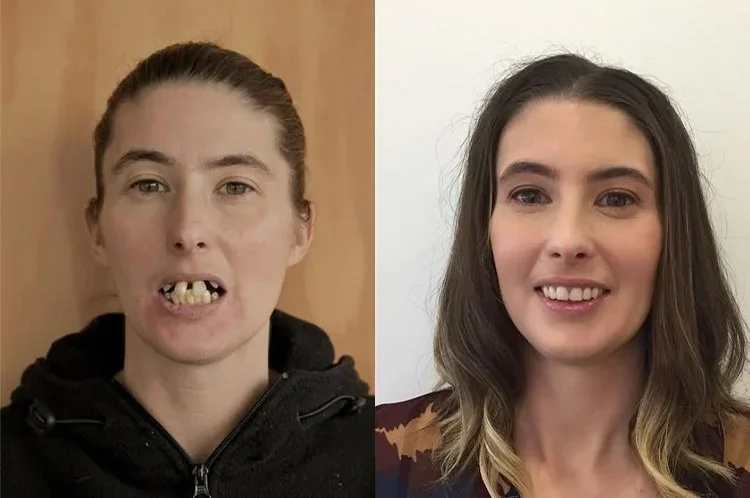
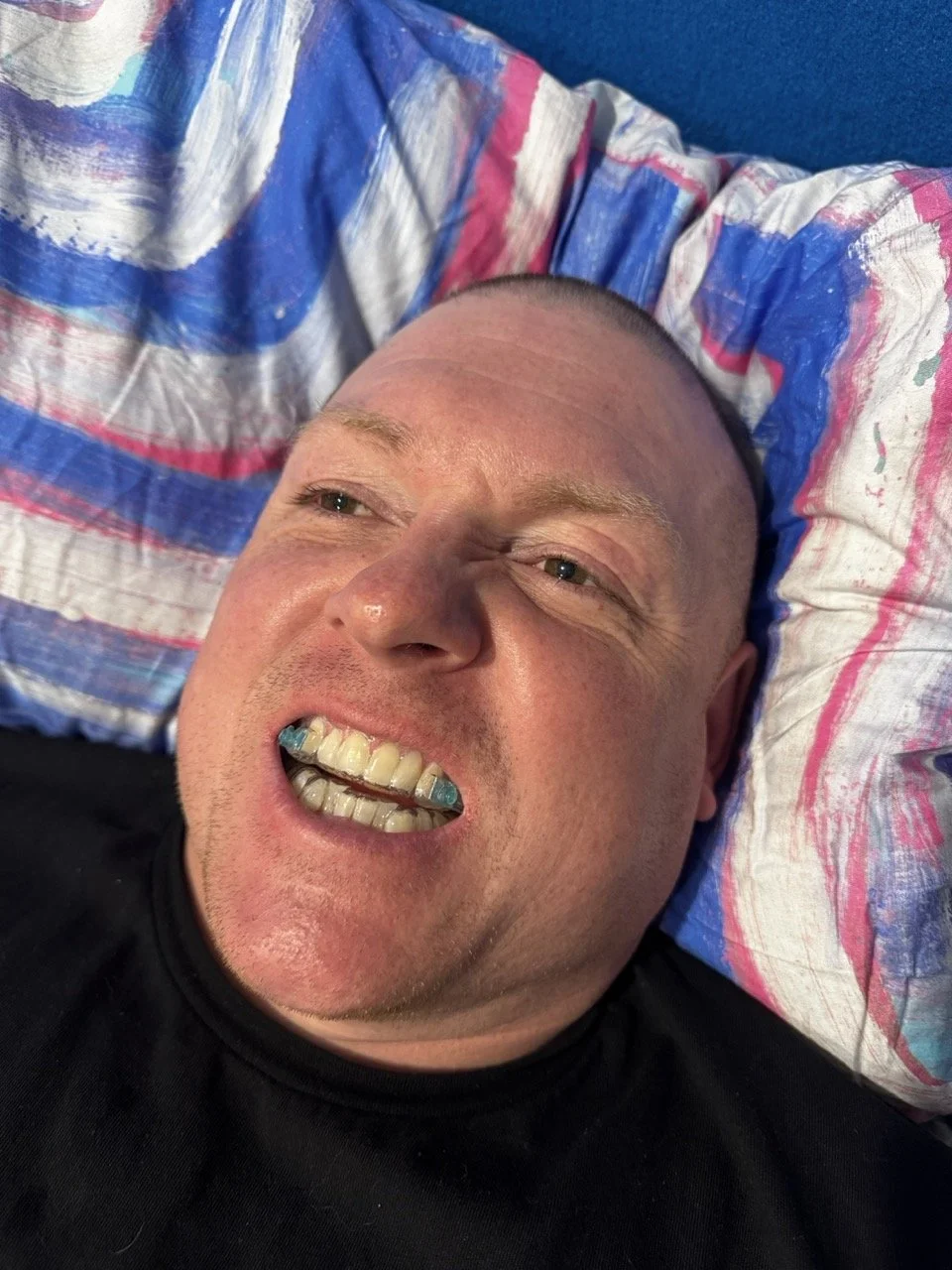

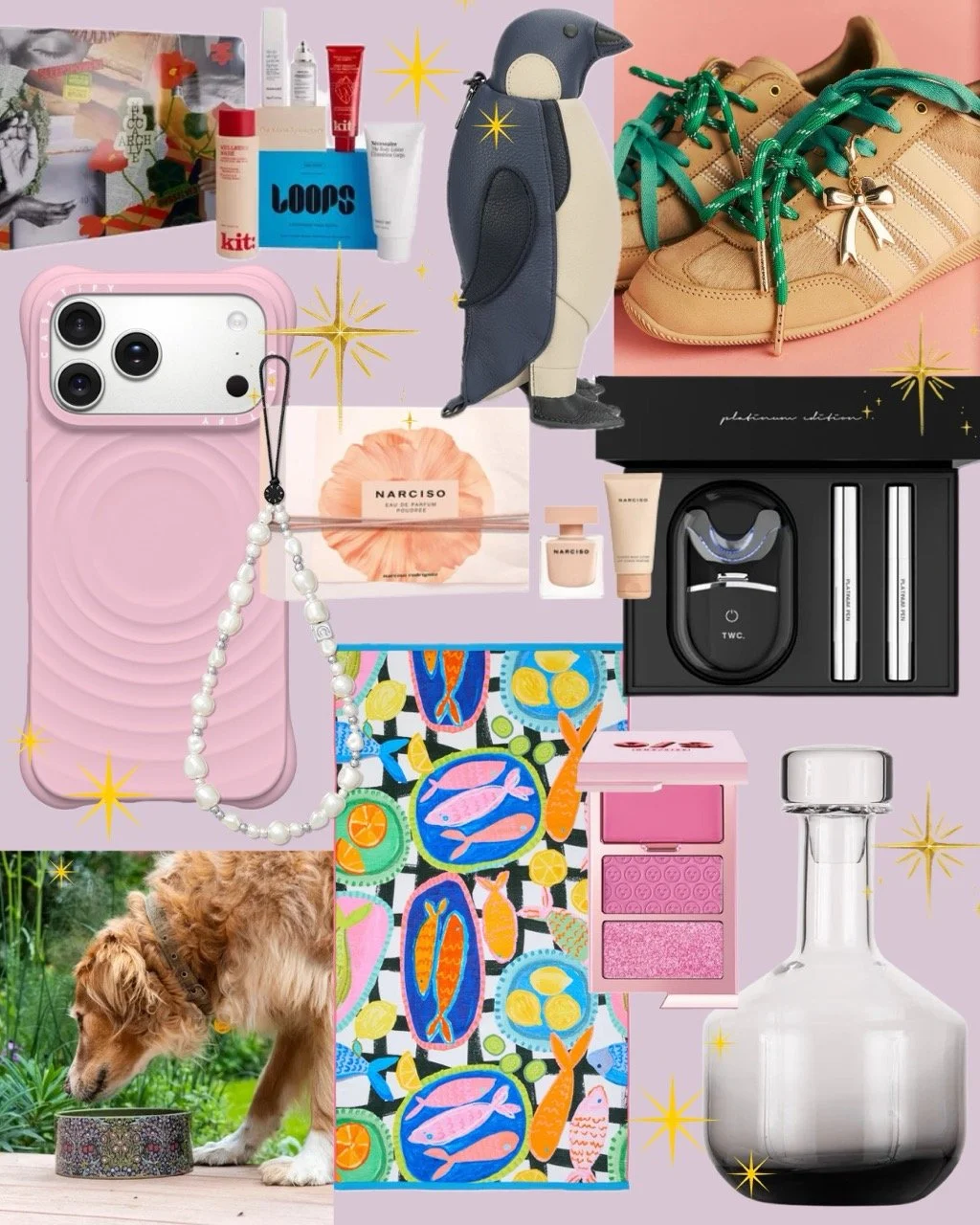
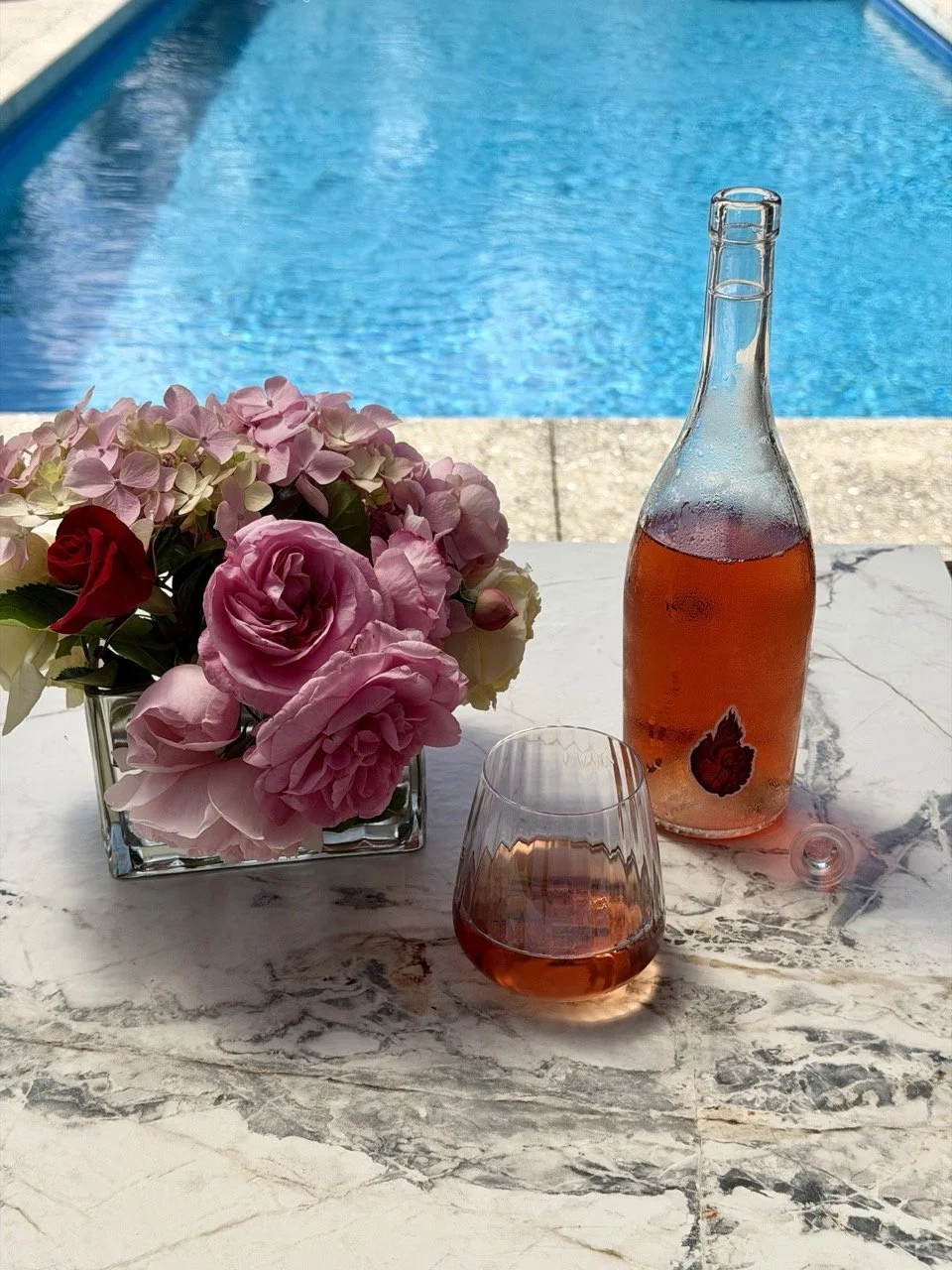




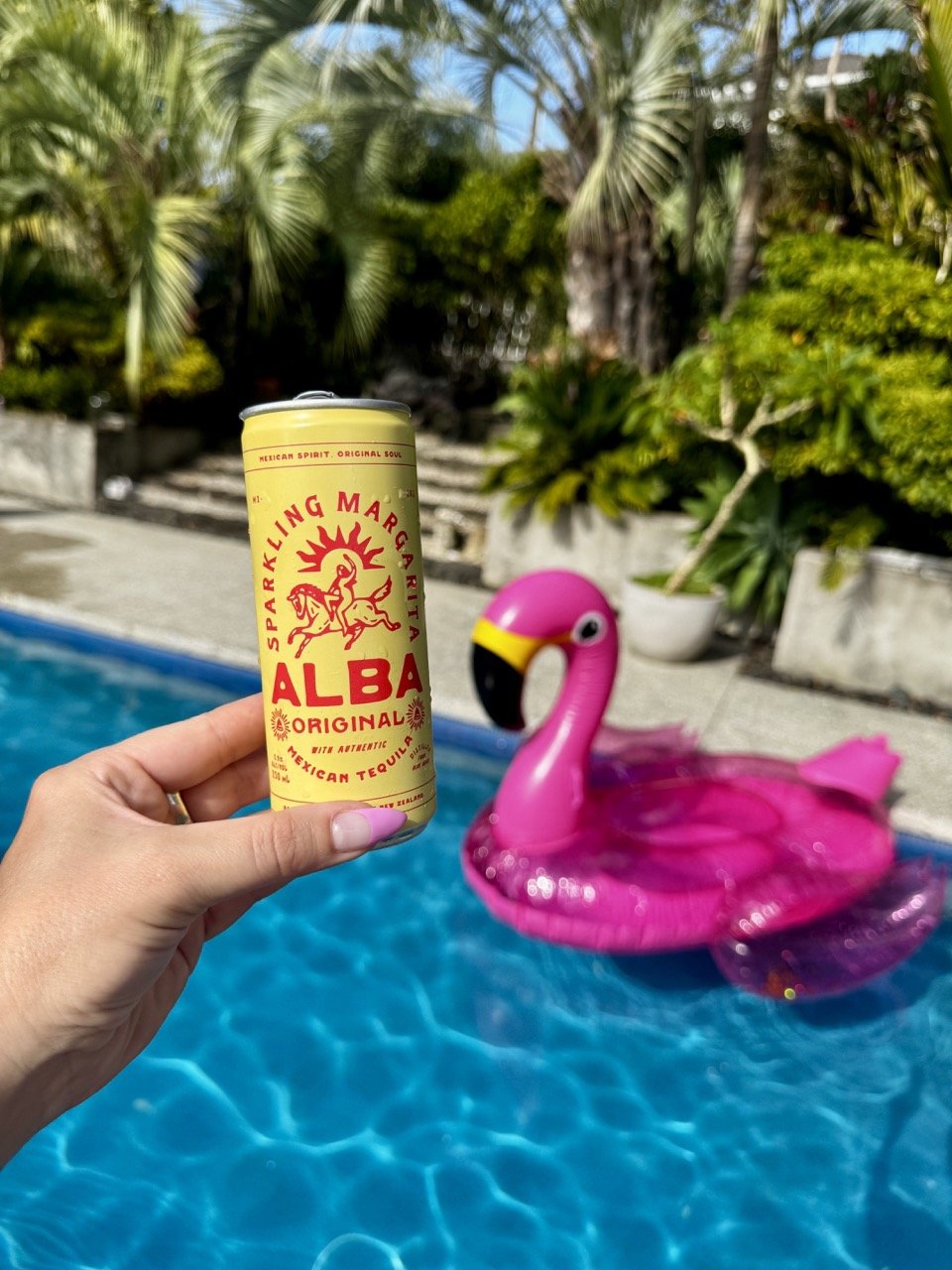



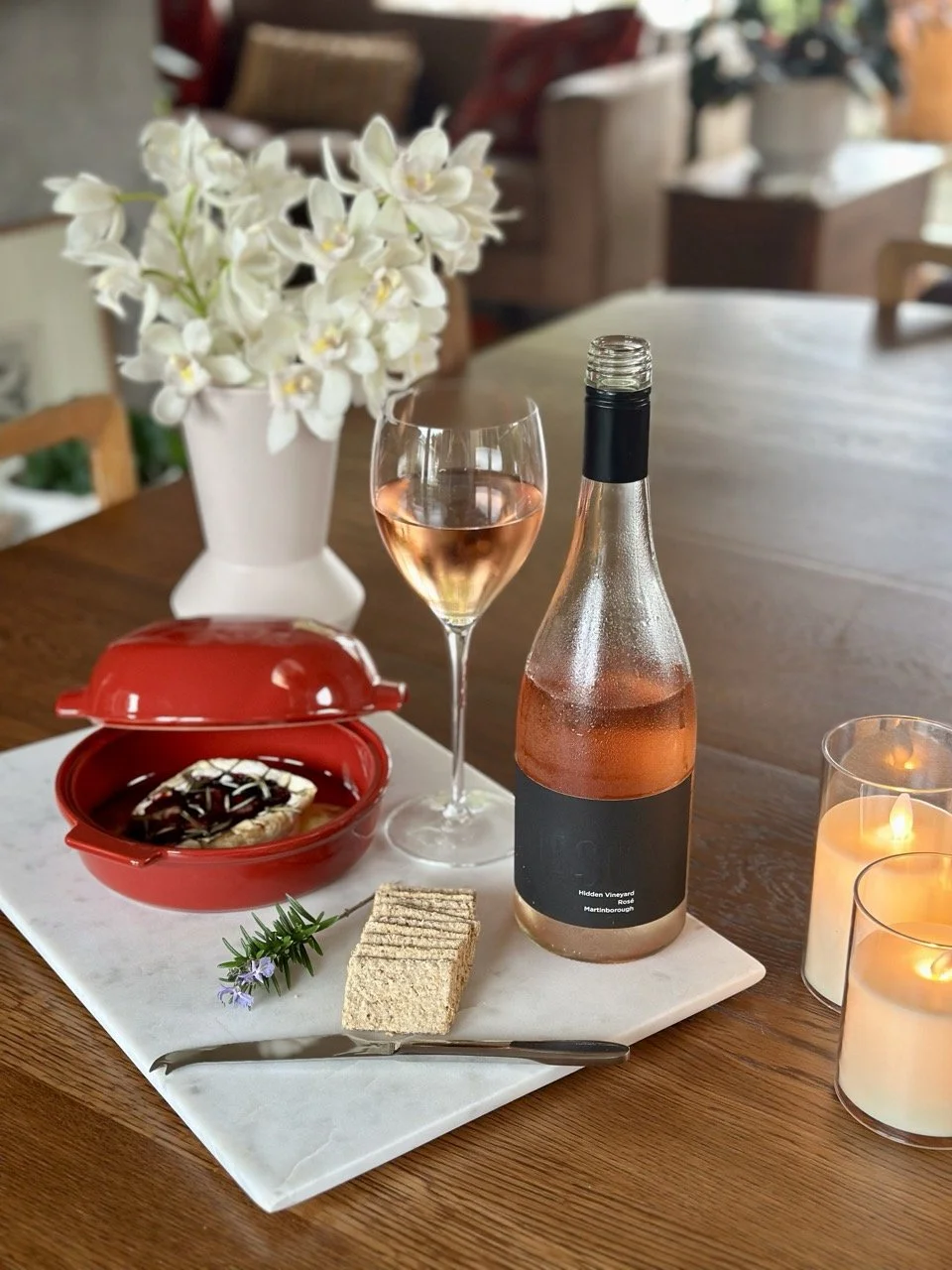










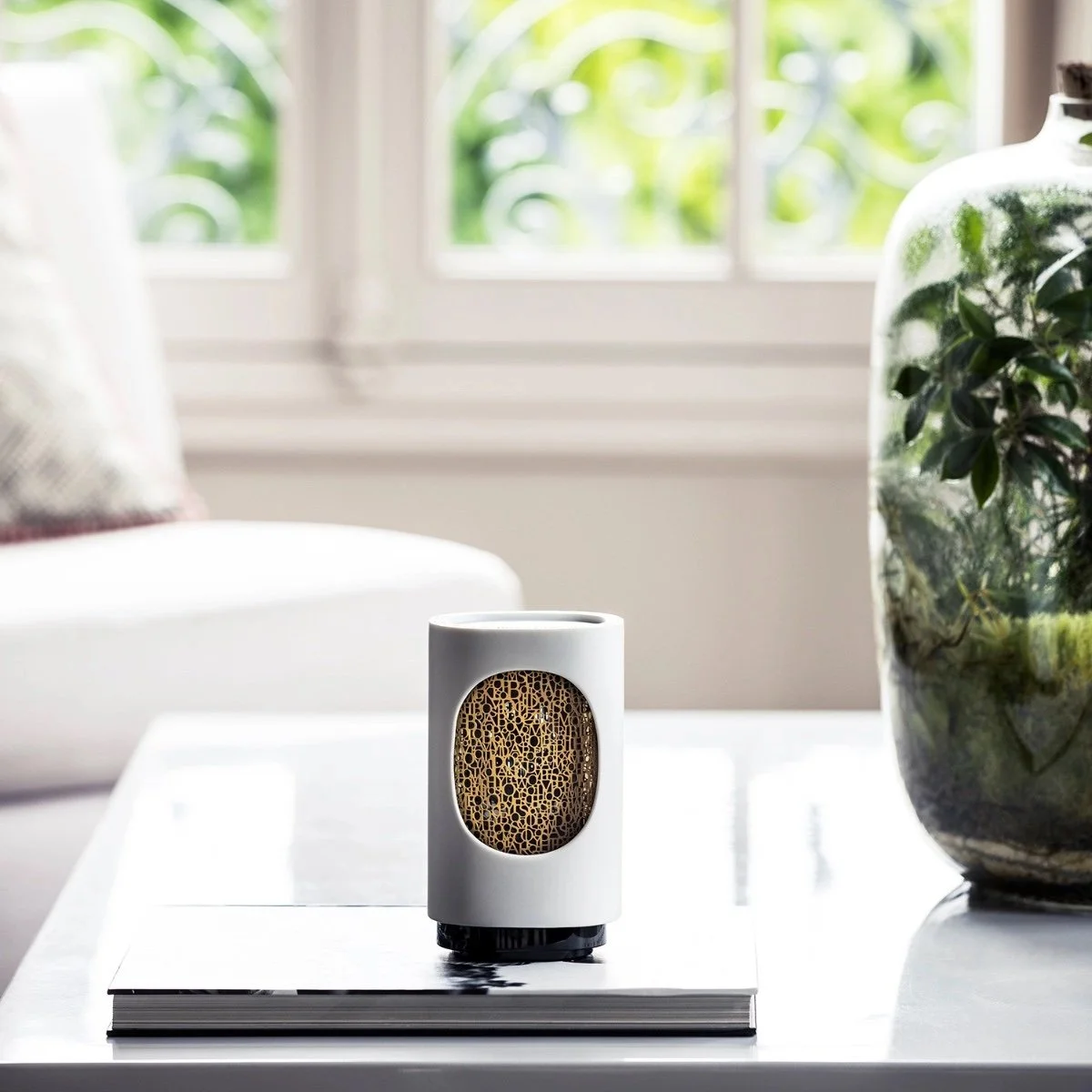

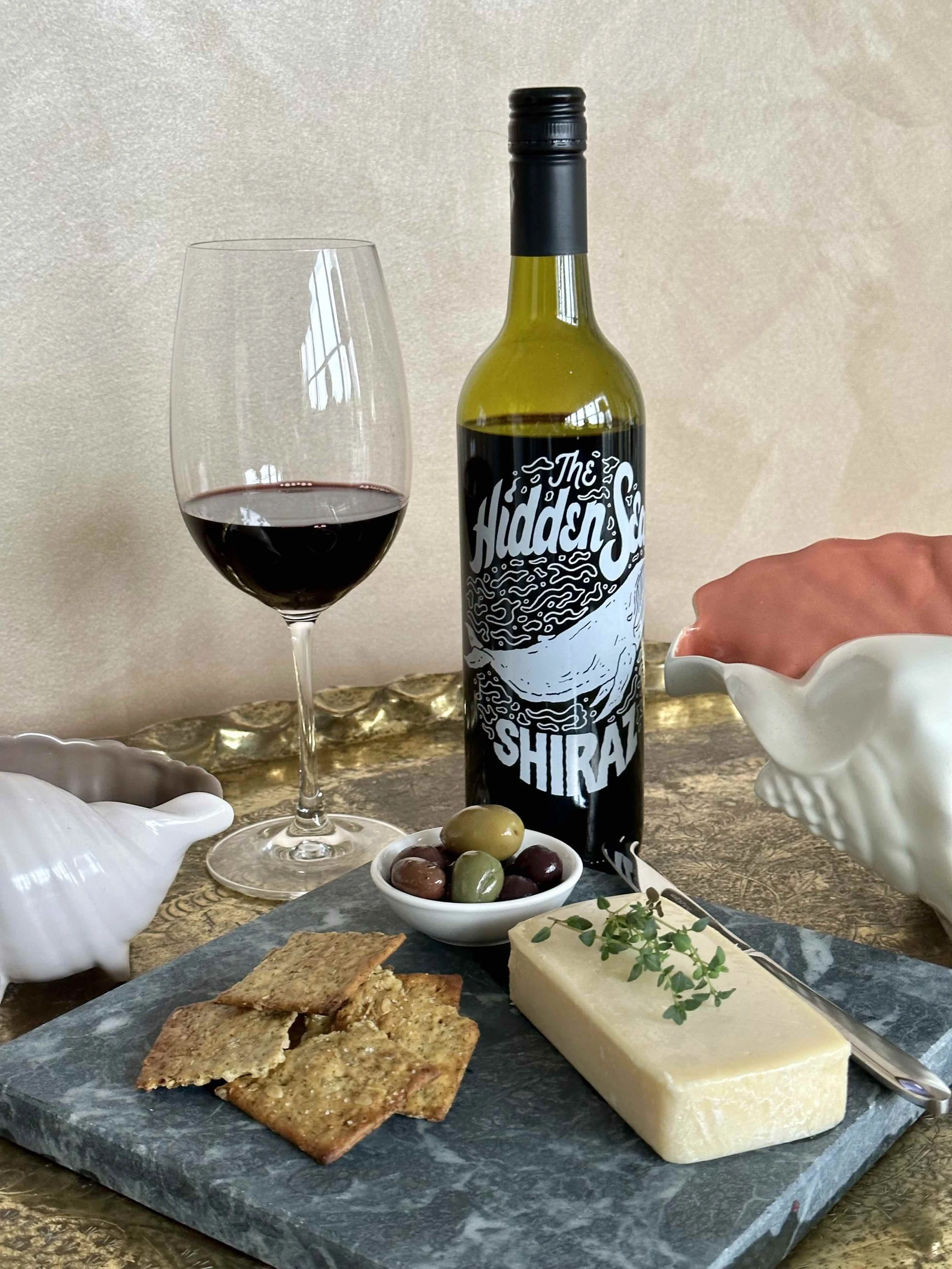


Style-inspiring and captivating.